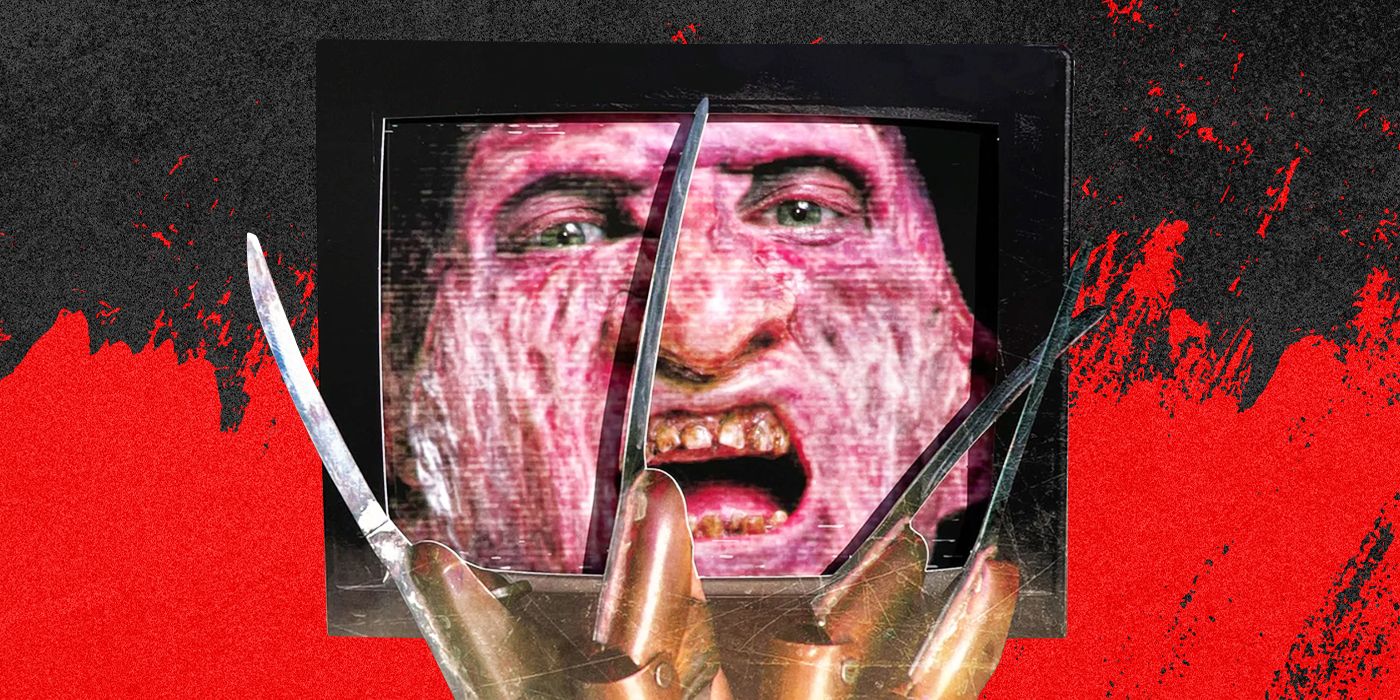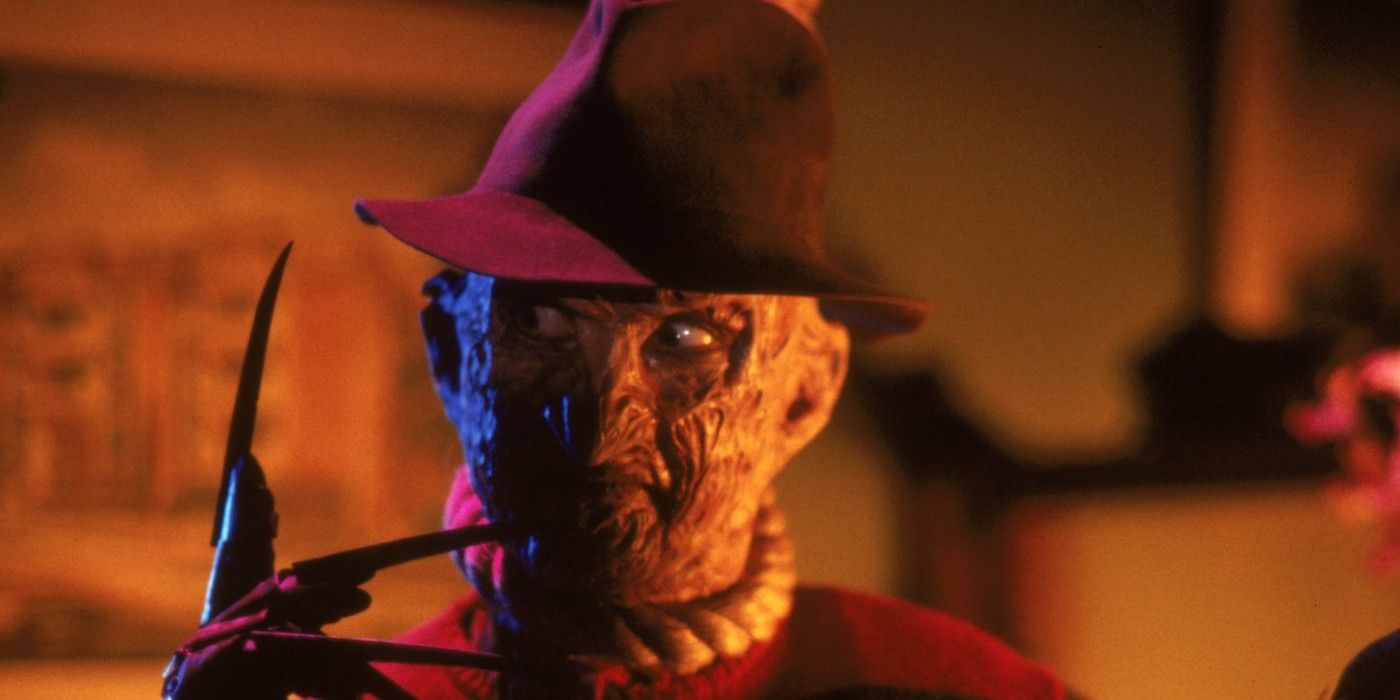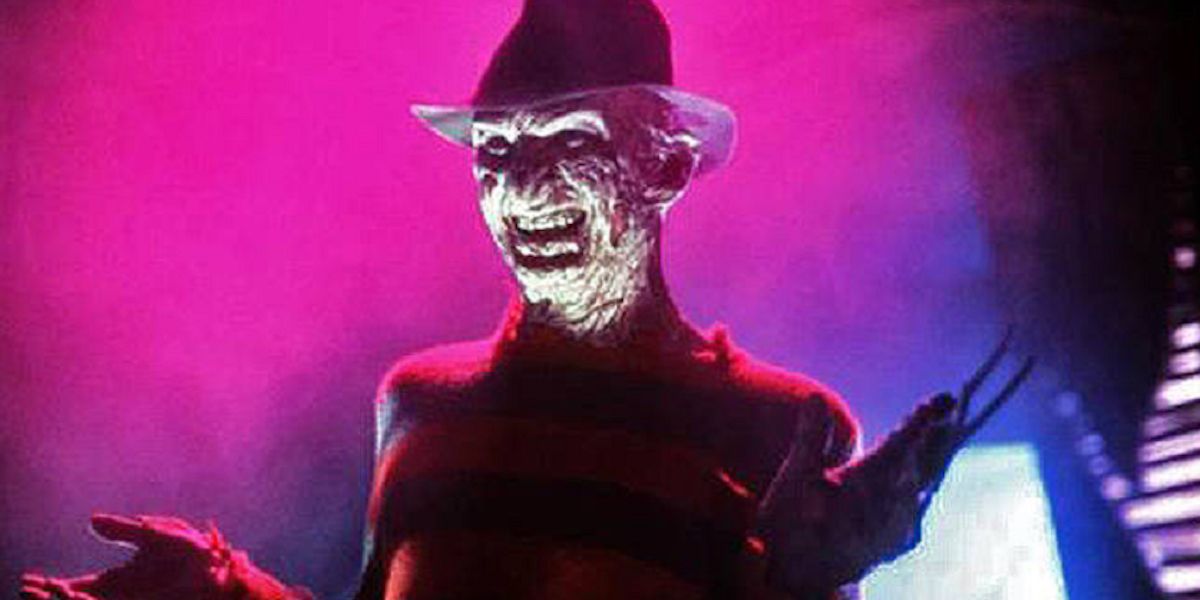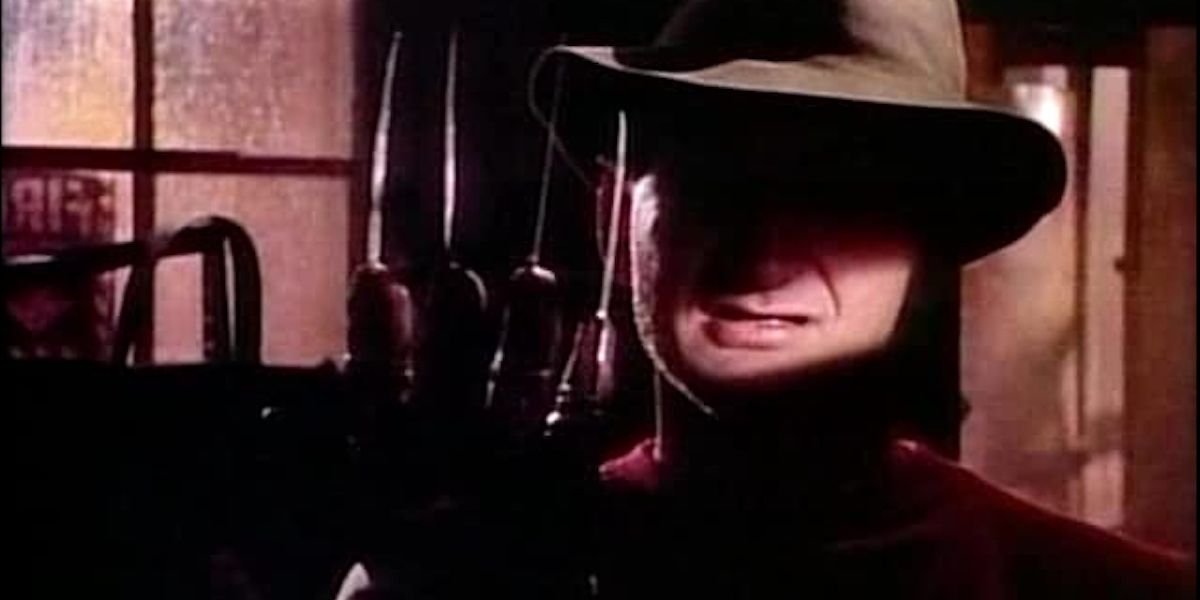There I was, winding down my Saturday night after a day of writing, hunting for something horror-related to watch before bed. I don't know about you, but my go-to for bedtime viewing tends to be comforting to me, and sometimes there's no better comfort watch than a big dose of nostalgia. I scoured through the usual streaming apps until I made my way to Tubi, which has vastly improved its movie selection recently. My initial reflex was to flip on Masters of Horror and drift off to sleep, but then I noticed a little something in my recommendations: Freddy's Nightmares, the show that birthed my love of anthology horror.
When I was in eighth grade, I had a basic post-school routine. I'd come home and either boot up a video game of some sort or sit out in the living room with my mom, who was always watching some form of horror anthology show. Typically, one of our local stations would be playing reruns of Tales From the Darkside, which for whatever reason didn't quite appeal to me. It may have been because the first episode I saw was "The Yattering and Jack," written by Clive Barker, which featured a possession storyline that led to a necklace-wearing Yuletide turkey flailing on top of a Christmas tree. It mostly made me laugh, and at that time of my life, I still wanted to be spooked more than anything. Fortunately one day, I came home from school and saw the dastardly visage of Freddy Krueger (Robert Englund). Having loved A Nightmare on Elm Street, I asked my mom what she was watching, and she told me about Freddy's Nightmares.
Once I'd found out about the show, I'd come home every day and check my local station to see if episodes of Freddy's Nightmares were airing. Fortunately, I didn't have to look for long, and I was delighted to catch the show's pilot "No More Mr. Nice Guy" directed by Tobe Hooper. This episode was just what I wanted to see as an Elm Street fan: The origins of Freddy Krueger, the Springwood Slasher before he was burned alive by the parents of Elm Street. It's a lovingly-crafted episode and stands on its own as one of the best pieces of Elm Street lore to this day. This episode had me hooked, and it wasn't long before watching Freddy's Nightmares became a lifestyle for me. Like plenty of anthologies, each episode of the show kept to its own self-contained narrative, though plenty of plot points stretched well beyond the boundaries of the real world. This was thanks to the various creative minds working on episodes including Hooper, Mick Garris, Tom DeSimone, Tom McLoughlin, Chuck Braverman, and a few episodes directed by Robert Englund himself. So many episodes stood out as special to me for how they managed to scare me, but each entry in the show brought this fear out from a different angle. From playing on anxieties to reveling in Freddy's very essence, there was always an episode for me to relate to even as I got older.
"No More Mr. Nice Guy" is the series' crowning achievement in my eyes, which might be a weird thing to say for a pilot episode. As much as we pieced together about Freddy through watching the Elm Street films. For the first time as a young Freddy fan, I witnessed what made this sinister yet lovable character. The episode takes place in the midst of Krueger's killing spree, and he's still on the loose. While attempting to kill the daughters of a police officer, the Springwood Slasher is finally apprehended. The carnage is over, if it weren't for the standards and practices of our judicial system. Turns out Fred Krueger wasn't read his rights when he was arrested, and his defense attorney successfully has the case dismissed. Even at a young age, such a complete miscarriage of justice lasted with me, making me realize that the law of the land is very, very far from infallible.
Justice is a two-sided coin in this episode. After Freddy walks away from his trial unscathed, the parents of Springwood decide that there's only one solution: Take justice into their own hands. Even cornered, Fred Krueger is menacing as ever, mocking the parents and threatening to come after more of their kids. Police arrive on the scene and initially stand against the parents, believing "the law is the law." But in the face of a truly evil human being, the cops can't defend his rights. What truly shocked me though is in the face of mob justice, Freddy simply allows the parents to burn him alive, stating to his attackers that he will live forever. Unfortunately, this turned out to be true, but the duality between judicial law and mob justice is on full display here. It wasn't subtle considering I was picking up on the message as a kid, but it hardly mattered thanks to how entertaining the episode was. The courts may have failed Springwood, but burning Freddy alive created a greater danger than anybody that night could have ever realized.
"Freddy's Tricks and Treats" drew me in significantly, as it plays to one of Freddy's biggest motivators: Fear. Without it, he's nothing, just a memory to be discarded and forgotten. This episode centers back on this, following a bookish medical student named Marsha (Mariska Hargitay) who is more focused on her upcoming exams than a party on Halloween night. She's a staunch, secular type, and she completely ignores any notion of ghosts or the supernatural. Her boyfriend isn't much of a help either, constantly annoying her in his attempts to scare her (including one incident where he dons a hockey mask, because of course). No matter what the inhabitants of Springwood seem to tell her, she believes herself too well-educated to buy into Freddy's story or his non-corporeal existence. However, through memories of her contemptuous and fundamentalist grandmother, the Dream Demon worms his way into her subconscious. Even for non-believers, trauma becomes a gateway to horror as fresh and real as any.
Freddy forces Marsha to relive the moment her grandmother died of a heart attack, which was her onus to become a medical student in the first place. Her psyche begins to crumble, and a lack of sleep due to her studies leaves her vulnerable to Krueger's infiltrations. The boyfriend she thought she had turns out not to have existed at all. The sexual repression she experienced on part of her strict upbringing also expresses itself, and after a mental break, her fellow med students try to monitor her nightmares in order to help her. They deduce that she's reluctant to face her fears, hence the source of her denial of the supernatural. The only way forward for Marsha is to confront her nightmare head-on. The trouble is, her nightmare doesn't only stay hers. There was so much I adored about this episode as a kid, but the mental wellness component and the nature of fear itself is what blew my tiny mind.
As a kid who had pretty present test anxiety, the two-parter "School Daze" somehow made me dread exams even more. The first half focuses on a kid who wants to be a rebel, cutting classes at Springwood High and refusing to fit in. However, the second half is what really played on my unease towards tests. A kid named Matt (Billy Morissette) struggles with the mere thought of his SAT scores, since he believes they're the key to his future success. He stares off into space, daydreaming in class (one of the most relatable things to me as a kid) about one day becoming a rock star, complete with a limo and groupies. The pressure of the enormity of his future begins to consume him, and I can't think of something I was (and still am, occasionally) terrified of: Being a failure and not living up to expectations. Matt's dreams quickly turn to nightmares of his life falling apart after failing his SATs and not being admitted to college.
In this episode, even without Freddy involved, the fear was palpable thanks to liberal doses of dream logic. I adore the concept of a "dream world" where writers and directors can throw any pretense of reality out the window. This way, they're free to manipulate the world around the characters to their own ends. After a single watch of School Daze, any mention of a test, even in middle school, made my heart drop into my gut. To this day, that creeping fear of not measuring up is still present. There are few things scarier than the unknown, and what is more unknown than your own future? This is what Freddy's Nightmares does so incredibly well. It zones in on the concept of fear in a given context, and hammers away at it through the use of hazy dream sequences and characters with a hidden vulnerability.
At large, this is what got hooked me into horror in the first place. It was always less about being afraid of something and more about why I was afraid in the first place. Sure, Freddy's Nightmares might seem campy to me now at the ripe age of 29, but as a tween it was integral to plant the seeds of spookiness in my mind. My appreciation of the show began as an appreciation of the 80s' most charismatic slasher, but expanded and showed me that horror comes in so many forms. Sometimes, you don't even need any blood, guts, and gore, just a lingering thought on something that brings you discomfort. Much like Freddy himself, fear always appears when our vulnerabilities are exposed before our eyes. Sure, I would probably learn this on my own eventually, but Freddy's Nightmares put me on that path early on.
Because of this little spin-off show, I can't get enough horror in all of its forms and mediums. Splatter cinema, folk horror novels, you name it, and I'll be there to experience it. All the while, Nightmares showed me that the scariest things in life are things we see when we look in the mirror. These horrors come in many forms, but they're always there, right underneath the surface. I never expected to come away learning something when I first finished the show, but I can look back on it fondly realizing that it helped me completely re-frame what I considered horror to be.




